
Donald Trump was bored with the same-old, same-old. Hillary Clinton was stymied by self-doubt. Then they had one of those unforgettable, connect-the-dots moments, when everything suddenly, somehow changed.
Yes, we're talking Aha! moments, and this month we've collected several of them to rev you up, recharge, and inspire you.
For the wisdom Halle Berry, Tyler Perry, Jay Leno, Hillary Clinton and Donald Trump didn't know they had, read on….
Yes, we're talking Aha! moments, and this month we've collected several of them to rev you up, recharge, and inspire you.
For the wisdom Halle Berry, Tyler Perry, Jay Leno, Hillary Clinton and Donald Trump didn't know they had, read on….
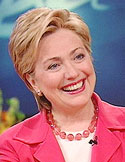
Choosing a single Aha! moment is nearly impossible. I've been blessed with a life filled with wonderful experiences—and epiphanies. Whether as a mother or First Lady or United States senator, I find every day seems to bring new and unexpected insights and understanding. For that I'm grateful. Of course, I still have to choose one moment to share—that's the deal. And there is one in particular that stands out in my mind.
Early in 1999, speculation was growing that I would enter the U.S. Senate race in New York. In fact, reading the newspaper or watching television, it seemed that the only person in the world not convinced I would run was me.
But there were so many things to consider. And so many obstacles. No First Lady had ever before sought public office. And I had never run for office myself. Sure, I'd campaigned all over the country, for my husband and for other candidates. But I was used to getting onstage and talking about the virtues of someone else. Would I be able to earn the trust of New Yorkers? Would I make a good candidate? Did I have what it takes?
It was an incredibly difficult decision, and I needed a push. Fortunately, I got one. In March of that year, I went to New York City to join Billie Jean King at an event promoting a documentary about Title IX and women in sports. (Lucky for me, athletic ability was not required for entry to the event.) We gathered at a local school, joined by dozens of young women athletes, all of us assembled on a stage beneath a giant banner that read dare to compete, the title of the film. A young woman named Sofia Totti, the captain of the girls' basketball team at the school, introduced me.
And then something unexpected happened. As I approached the microphone to say a few words about the importance of giving girls every opportunity to grow and reach their potential, Sofia grabbed my hand and whispered in my ear: "Dare to compete, Mrs. Clinton," she said. "Dare to compete."
I was stunned—genuinely caught off guard. Late into that night, I was still thinking about what she'd said. I started to ask myself questions that had been lurking in the back of my mind for a long time. How can I give in to my fears and fail to do something I have urged countless other women to do? Why am I so hesitant about taking on this challenge? Why aren't I thinking more seriously about it?
All of us struggle to be the best we can be. All of us wonder at times whether what lies ahead is too difficult or too challenging. In truth, sometimes our most fearsome competitor is ourself, as we face our own doubts and fears on the way to reaching our potential.
Daring to compete isn't always easy. But Sofia, in her optimism and enthusiasm, in her spirit and drive, reminded me why it's so important. Soon after her challenge, I decided to risk being the best I could be and entered the race. Now, as a senator representing New York and fighting in Congress on the issues I care about, I can look back and say that the Aha! moment Sofia inspired was one of the most important of my life. Maybe next I'll dare to work on my jump shot.
Early in 1999, speculation was growing that I would enter the U.S. Senate race in New York. In fact, reading the newspaper or watching television, it seemed that the only person in the world not convinced I would run was me.
But there were so many things to consider. And so many obstacles. No First Lady had ever before sought public office. And I had never run for office myself. Sure, I'd campaigned all over the country, for my husband and for other candidates. But I was used to getting onstage and talking about the virtues of someone else. Would I be able to earn the trust of New Yorkers? Would I make a good candidate? Did I have what it takes?
It was an incredibly difficult decision, and I needed a push. Fortunately, I got one. In March of that year, I went to New York City to join Billie Jean King at an event promoting a documentary about Title IX and women in sports. (Lucky for me, athletic ability was not required for entry to the event.) We gathered at a local school, joined by dozens of young women athletes, all of us assembled on a stage beneath a giant banner that read dare to compete, the title of the film. A young woman named Sofia Totti, the captain of the girls' basketball team at the school, introduced me.
And then something unexpected happened. As I approached the microphone to say a few words about the importance of giving girls every opportunity to grow and reach their potential, Sofia grabbed my hand and whispered in my ear: "Dare to compete, Mrs. Clinton," she said. "Dare to compete."
I was stunned—genuinely caught off guard. Late into that night, I was still thinking about what she'd said. I started to ask myself questions that had been lurking in the back of my mind for a long time. How can I give in to my fears and fail to do something I have urged countless other women to do? Why am I so hesitant about taking on this challenge? Why aren't I thinking more seriously about it?
All of us struggle to be the best we can be. All of us wonder at times whether what lies ahead is too difficult or too challenging. In truth, sometimes our most fearsome competitor is ourself, as we face our own doubts and fears on the way to reaching our potential.
Daring to compete isn't always easy. But Sofia, in her optimism and enthusiasm, in her spirit and drive, reminded me why it's so important. Soon after her challenge, I decided to risk being the best I could be and entered the race. Now, as a senator representing New York and fighting in Congress on the issues I care about, I can look back and say that the Aha! moment Sofia inspired was one of the most important of my life. Maybe next I'll dare to work on my jump shot.
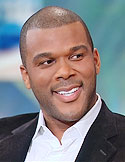
My father was a carpenter. He used his hands to pour concrete and hammer nails. He also used his hands to beat me.
I was a tall child, but sickly—I had asthma—and when I went to work with him, the sawdust made me cough. I preferred staying home, writing and drawing. I conjured up other worlds: worlds in which I didn't worry about being poor, in which I was someone else's child, a child who lived in a mansion and had a dog. My father—a man with a third-grade education who was orphaned at 2 and sent to work in the fields at 5—understood only the physical. He thought he could beat the softness out of me and make me hard like him.
When I was 21, I left my house in New Orleans and headed to Atlanta to be a playwright. I got a day job as a bill collector and scrimped and saved to put on my play I Know I've Been Changed— a musical about recovering from an abusive childhood. But even though I was writing about recovering, I wasn't doing it. Every day I felt angry and bitter and terribly lonely. I rarely dated, and if a woman told me she loved me, I headed for the door. My play bombed; 30 people came on opening weekend. I put it on the next year and the year after that, and each time, it bombed again. Finally, 28 years old, out of money and months behind on my rent, I started sleeping in my car. When the car broke down, I asked my father to cosign on a new one, as he had just done for my sister (the light-skinned sister he adored). When he refused, I forged his signature. And when the car got repossessed, he called me, yelling. Sitting in that little room I'd just scraped together enough money to rent, listening to him berate me, something snapped. Something dormant in me woke up, and I began to yell back.
I told him that he'd hated me since I was born, that I didn't deserve the things he'd done to me. Everything I'd ever felt or thought—even things I hadn't been aware of—came out. When I was done, the line was silent for a long time. And then, for the first time ever, my father said, "I love you."
After we hung up, I felt light, empty, and exhausted. I knew that I would never again look at my father in hurt or anger. But in a strange way, I also sensed that something had died. I sat crying for hours, as if I were in mourning. My energy source, my fight, the rage that had moved me every day—it was all gone.
Slowly but surely, I began to fuel my days with joy instead of fury. That year—call it coincidence, call it karma—my play sold out. Then it sold out again, and then again. I began to write new plays, and the theme of forgiveness runs through them all. It's simple: When you haven't forgiven those who've hurt you, you turn your back against your future. When you do forgive, you start walking forward.
I was a tall child, but sickly—I had asthma—and when I went to work with him, the sawdust made me cough. I preferred staying home, writing and drawing. I conjured up other worlds: worlds in which I didn't worry about being poor, in which I was someone else's child, a child who lived in a mansion and had a dog. My father—a man with a third-grade education who was orphaned at 2 and sent to work in the fields at 5—understood only the physical. He thought he could beat the softness out of me and make me hard like him.
When I was 21, I left my house in New Orleans and headed to Atlanta to be a playwright. I got a day job as a bill collector and scrimped and saved to put on my play I Know I've Been Changed— a musical about recovering from an abusive childhood. But even though I was writing about recovering, I wasn't doing it. Every day I felt angry and bitter and terribly lonely. I rarely dated, and if a woman told me she loved me, I headed for the door. My play bombed; 30 people came on opening weekend. I put it on the next year and the year after that, and each time, it bombed again. Finally, 28 years old, out of money and months behind on my rent, I started sleeping in my car. When the car broke down, I asked my father to cosign on a new one, as he had just done for my sister (the light-skinned sister he adored). When he refused, I forged his signature. And when the car got repossessed, he called me, yelling. Sitting in that little room I'd just scraped together enough money to rent, listening to him berate me, something snapped. Something dormant in me woke up, and I began to yell back.
I told him that he'd hated me since I was born, that I didn't deserve the things he'd done to me. Everything I'd ever felt or thought—even things I hadn't been aware of—came out. When I was done, the line was silent for a long time. And then, for the first time ever, my father said, "I love you."
After we hung up, I felt light, empty, and exhausted. I knew that I would never again look at my father in hurt or anger. But in a strange way, I also sensed that something had died. I sat crying for hours, as if I were in mourning. My energy source, my fight, the rage that had moved me every day—it was all gone.
Slowly but surely, I began to fuel my days with joy instead of fury. That year—call it coincidence, call it karma—my play sold out. Then it sold out again, and then again. I began to write new plays, and the theme of forgiveness runs through them all. It's simple: When you haven't forgiven those who've hurt you, you turn your back against your future. When you do forgive, you start walking forward.
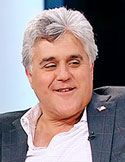
They say 7 is the age of reason. For me, it was 8.
I was living in the suburbs outside New York City, going to school and hanging with some older neighborhood kids. They were maybe 11 or 12, a rough-around-the-edges bunch, the sort of boys who stole packs of gum. One day, while we were milling around the local playground, one of these kids pulled out some photographs that were rumored to be pornography. As everyone crowded around to get an eyeful of the woman's body part (the photo quality was so low, I don't think they ever found out what they were actually looking at), I noticed that one kid was fooling around with a little pocket knife, spinning it in his hands.
Trust me, I was no Goody Two-shoes. I was a horrible student, dyslexic and prone to pulling pranks. But as the group bunched together, standing on their tiptoes to get a peek, I stepped back. There really wasn't much going on—just some curious kids and one boy with a pocket knife—but suddenly I could see the path we were starting to take and where it might lead us years down the road. I remember thinking, This can only be trouble. And I turned and walked away.
Why did I walk away? Was it because my mom was such a great one for pointing out the consequences of one's actions? (Until the day she died, she'd ask, "Jay, what if the president's family is watching when you do a joke about him? How do you think they'd feel?") I really can't say. All I know is that from then on, every decision I made was based in part on that one.
If my college friends and I had been drinking beer and they wanted to drive somewhere, I wouldn't. It's not as if they ran into a school bus full of nuns and incinerated them; they just drove home tipsy and went to bed. But I chose not to. Or, early in my career, if I was doing a stand-up routine and someone heckled me, I could have stolen another comedian's line—the perfect, wit-drenched comeback—because comics steal from one another all the time. But I wouldn't; I'd get flummoxed and trip around instead. Every night on my show, I could be mean-spirited and crushing, but that's really not my style. I didn't have a profound epiphany.
I didn't make an earth-shattering change or suddenly morph into a shockingly admirable man. It was just a small moment, something I hardly noticed at the time. Only years later did I figure it out: I made my first conscious, moral decision that day when I was 8, on the playground with a bunch of kids and a blurry picture of something or other.
I was living in the suburbs outside New York City, going to school and hanging with some older neighborhood kids. They were maybe 11 or 12, a rough-around-the-edges bunch, the sort of boys who stole packs of gum. One day, while we were milling around the local playground, one of these kids pulled out some photographs that were rumored to be pornography. As everyone crowded around to get an eyeful of the woman's body part (the photo quality was so low, I don't think they ever found out what they were actually looking at), I noticed that one kid was fooling around with a little pocket knife, spinning it in his hands.
Trust me, I was no Goody Two-shoes. I was a horrible student, dyslexic and prone to pulling pranks. But as the group bunched together, standing on their tiptoes to get a peek, I stepped back. There really wasn't much going on—just some curious kids and one boy with a pocket knife—but suddenly I could see the path we were starting to take and where it might lead us years down the road. I remember thinking, This can only be trouble. And I turned and walked away.
Why did I walk away? Was it because my mom was such a great one for pointing out the consequences of one's actions? (Until the day she died, she'd ask, "Jay, what if the president's family is watching when you do a joke about him? How do you think they'd feel?") I really can't say. All I know is that from then on, every decision I made was based in part on that one.
If my college friends and I had been drinking beer and they wanted to drive somewhere, I wouldn't. It's not as if they ran into a school bus full of nuns and incinerated them; they just drove home tipsy and went to bed. But I chose not to. Or, early in my career, if I was doing a stand-up routine and someone heckled me, I could have stolen another comedian's line—the perfect, wit-drenched comeback—because comics steal from one another all the time. But I wouldn't; I'd get flummoxed and trip around instead. Every night on my show, I could be mean-spirited and crushing, but that's really not my style. I didn't have a profound epiphany.
I didn't make an earth-shattering change or suddenly morph into a shockingly admirable man. It was just a small moment, something I hardly noticed at the time. Only years later did I figure it out: I made my first conscious, moral decision that day when I was 8, on the playground with a bunch of kids and a blurry picture of something or other.
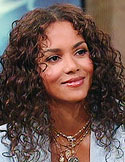
Several years ago, I was in a car accident. I have no memory of leaving the scene—I just remember sitting in my kitchen with a gash in my head and then being driven to the hospital. I couldn't explain where I'd been or how I'd gotten home. Later I learned that head injuries often send your body into protective mode. I had slipped into autopilot. But my injury was the least of my problems.
After I told the police I wasn't certain about the location of the accident, the D.A. spent six weeks deciding if he could prove that I'd meant to flee the scene and would charge me with a felony. All that time, I wandered around feeling sick to my stomach, asking myself, Why is this happening? In the end, I was charged with a misdemeanor, fined, and sentenced to probation and community service.
The charity I chose to serve was Jenesse Center, a shelter in downtown Los Angeles for domestic violence survivors and their children. I felt drawn to the organization because my mother had been a battered wife and because downtown L.A. is a primarily black community. On my first visit to the center—from the moment I walked in—I felt an overwhelming sense of warmth. But even though the place was homey, it could have used a few bucks. Even though the women were wonderful, they could have used someone to talk to. And as I was driving home, I realized that my question had been answered. This wasn't about my doing my time and getting out. These people needed me, and I needed them.
I know what it's like to crave human comfort like your body craves air, to crave it so badly that you'd sacrifice your dignity to get it. In my own struggle to find love, I was lucky to have a mother looking out for me, and a fifth-grade teacher who really cared. Now I understand why they were so happy to see me flourish. And each time I see a woman at Jenesse find the courage to file for divorce, or gain the confidence that comes with landing a job, I feel joy.
I no longer scramble blindly through hardship. I no longer emerge from a bad time feeling relieved just to have survived. Instead of despairing, I try to find the lesson within the experience. Nothing will ever be as frightening as those six weeks after the accident, because I now know that even in the worst times, the universe is leading us toward a higher good.
After I told the police I wasn't certain about the location of the accident, the D.A. spent six weeks deciding if he could prove that I'd meant to flee the scene and would charge me with a felony. All that time, I wandered around feeling sick to my stomach, asking myself, Why is this happening? In the end, I was charged with a misdemeanor, fined, and sentenced to probation and community service.
The charity I chose to serve was Jenesse Center, a shelter in downtown Los Angeles for domestic violence survivors and their children. I felt drawn to the organization because my mother had been a battered wife and because downtown L.A. is a primarily black community. On my first visit to the center—from the moment I walked in—I felt an overwhelming sense of warmth. But even though the place was homey, it could have used a few bucks. Even though the women were wonderful, they could have used someone to talk to. And as I was driving home, I realized that my question had been answered. This wasn't about my doing my time and getting out. These people needed me, and I needed them.
I know what it's like to crave human comfort like your body craves air, to crave it so badly that you'd sacrifice your dignity to get it. In my own struggle to find love, I was lucky to have a mother looking out for me, and a fifth-grade teacher who really cared. Now I understand why they were so happy to see me flourish. And each time I see a woman at Jenesse find the courage to file for divorce, or gain the confidence that comes with landing a job, I feel joy.
I no longer scramble blindly through hardship. I no longer emerge from a bad time feeling relieved just to have survived. Instead of despairing, I try to find the lesson within the experience. Nothing will ever be as frightening as those six weeks after the accident, because I now know that even in the worst times, the universe is leading us toward a higher good.
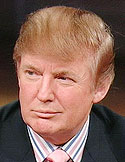
About seven years ago, I went to a party in New York City expecting the usual: high-profile people, gorgeous models, and the rest of the glitterati that goes along with that kind of New York nightlife. Someone pointed out a supermodel, but it was the person sitting next to her who got my attention: a woman who struck me as unusual.
She had an aristocratic, reserved air without being at all haughty. She seemed elegant from the inside out. I can assess people pretty well, and I found her irresistible. Little did I know then—or did I?—that, several years down the line, I would be marrying this extraordinary being. First I had to figure out how to ask her on a date.
Actually, first I had to ask someone what her name was—Melania, a beautiful name—because I wasn't sure how to approach her myself. Considering my reputation for being anything but shy, my reaction might sound hard to believe, but it was a real Aha! moment for me: I realized that even after you've done a lot of living, you can still be amazed by what can turn up in life—that it's still possible to discover things you hadn't thought existed. I think I knew right away that this was the real deal. And that came as a big surprise.
Despite my sudden shyness, I managed to give Melania every single one of my phone numbers. She seemed suspicious, which made me realize she was not only an incredible-looking woman but an intelligent one as well. She questioned me about each phone number: Business or personal? Limousine or bodyguard? I could tell she knew her stuff. I could also surmise that she knew who I was, and I remember deciding, Well, depending on her sources, that could work either for me or against me. However, Melania likes to think for herself—another wonderful attribute—so she gave me a chance. Who knows? Maybe she learned something about the capacity for astonishment herself.
She had an aristocratic, reserved air without being at all haughty. She seemed elegant from the inside out. I can assess people pretty well, and I found her irresistible. Little did I know then—or did I?—that, several years down the line, I would be marrying this extraordinary being. First I had to figure out how to ask her on a date.
Actually, first I had to ask someone what her name was—Melania, a beautiful name—because I wasn't sure how to approach her myself. Considering my reputation for being anything but shy, my reaction might sound hard to believe, but it was a real Aha! moment for me: I realized that even after you've done a lot of living, you can still be amazed by what can turn up in life—that it's still possible to discover things you hadn't thought existed. I think I knew right away that this was the real deal. And that came as a big surprise.
Despite my sudden shyness, I managed to give Melania every single one of my phone numbers. She seemed suspicious, which made me realize she was not only an incredible-looking woman but an intelligent one as well. She questioned me about each phone number: Business or personal? Limousine or bodyguard? I could tell she knew her stuff. I could also surmise that she knew who I was, and I remember deciding, Well, depending on her sources, that could work either for me or against me. However, Melania likes to think for herself—another wonderful attribute—so she gave me a chance. Who knows? Maybe she learned something about the capacity for astonishment herself.




